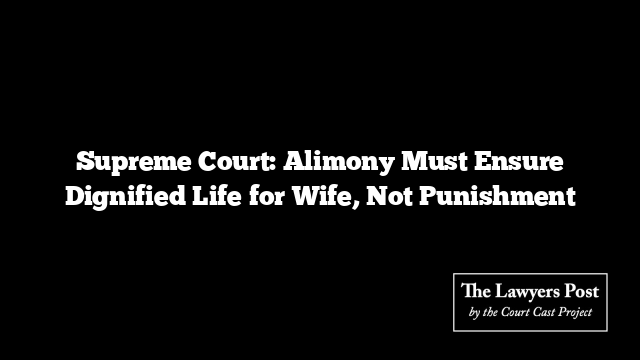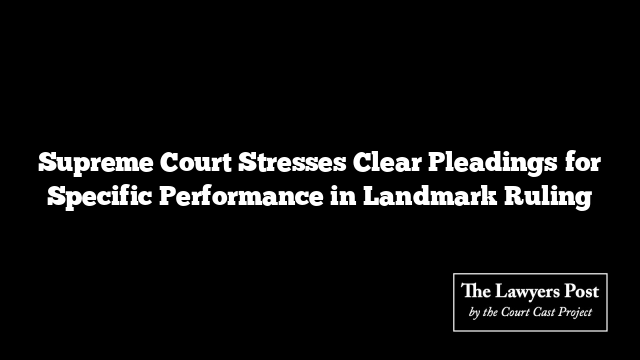In a significant ruling, the Supreme Court emphasized that the purpose of permanent alimony is to ensure a decent living standard for a wife rather than to act as a penalty. On July 15, the Court ordered a husband to pay Rs. 2 Crores as permanent alimony to his wife.
The Bench of Justices Vikram Nath and Prashant Kumar Mishra referenced several precedents, including Vishwanath Agrawal v. Sarla Vishwanath Agrawal, to determine the one-time settlement amount. The Court underscored that factors such as social status, lifestyle, and conduct of the parties must be considered when awarding alimony.
In Rajnesh v. Neha and Another (2020), the Supreme Court laid out various factors for calculating maintenance, which were reiterated in this case:
- Social and financial status of the parties
- Reasonable needs of the wife and children
- Qualifications and employment status of both parties
- Independent income or assets owned by the parties
- Standard of living during the marriage
- Employment sacrifices made for family responsibilities
- Reasonable litigation costs for a non-working wife
- Financial capacity of the husband, including his income, maintenance obligations, and liabilities
The Court noted that both the husband and wife are educated and employed, with high living standards and dependents to support. The husband’s monthly income was over Rs. 8 Lakhs, while the wife’s was Rs.1,39,000. Despite the husband’s responsibilities towards his parents and the wife’s towards her parents and minor daughter, the husband’s income was significantly higher.
The wife had initially demanded Rs. 5 to 7 Crores, while the husband offered Rs. 50 Lakhs. After considering all relevant factors, the Court settled on Rs. 2 Crores as a fair amount to cover all pending and future claims.
The case originated from an appeal by the wife against a Delhi High Court judgment that rejected her plea for attachment of her husband’s bank account and complete payment of interim maintenance. The Supreme Court concluded that the marriage had irretrievably broken down, as the parties had been living separately for nine years with no successful reconciliation despite mediation attempts.
Citing previous judgments, including Ashok Hurra v. Rupa Bipin Zaveri and Shilpa Sailesh v. Varun Sreenivasan, the Court exercised its discretionary power under Article 142 of the Indian Constitution to dissolve the marriage. The husband was given a four-month timeline to pay the alimony, and all pending proceedings between the parties were to be disposed of.





